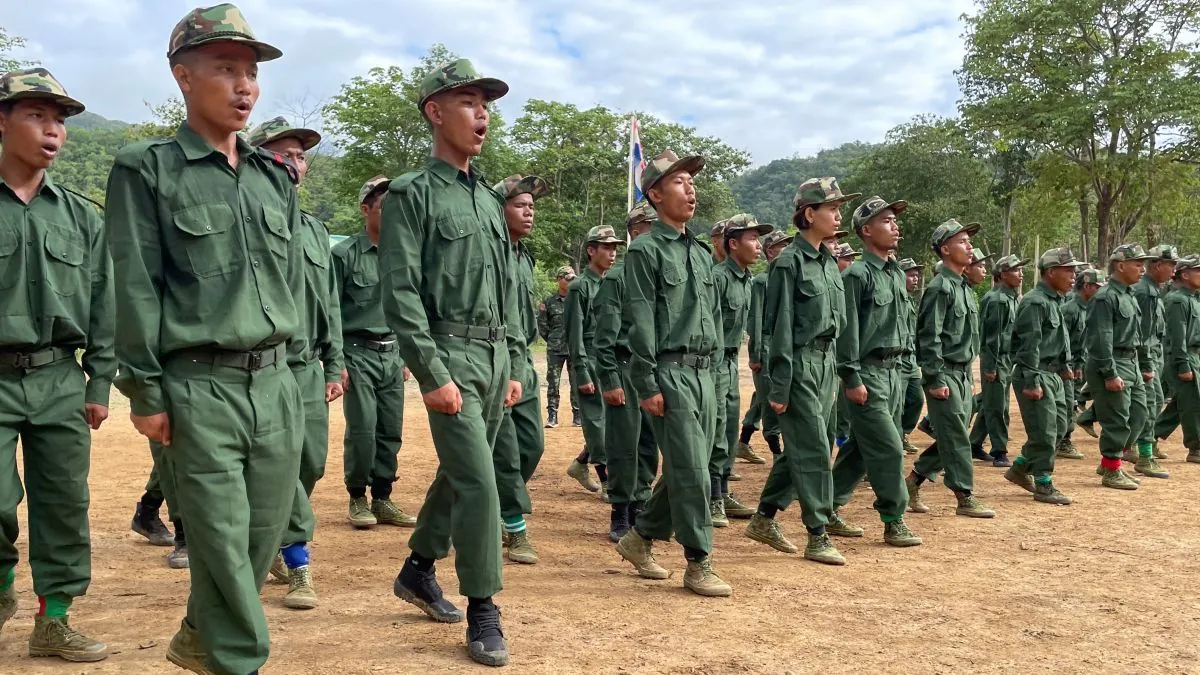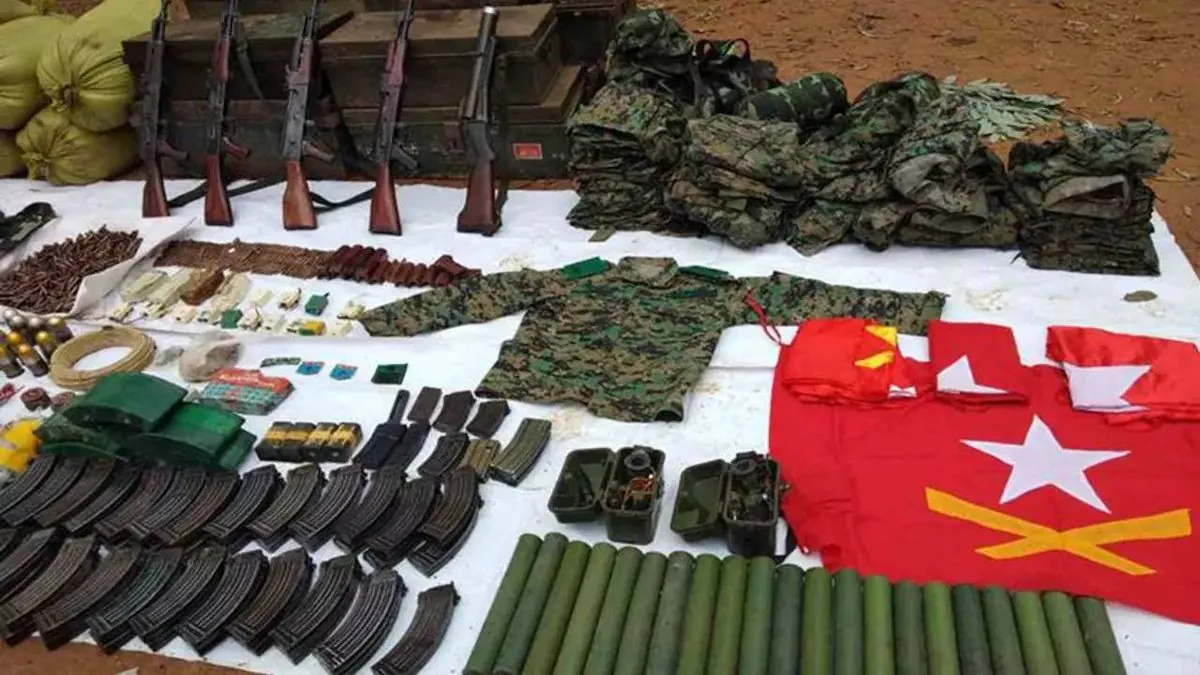Myanmar's Youth Forge Revolutionary Path in Dense Jungle Training Camps
In Myanmar's rebel-held territories, young civilians transform into soldiers, enduring rigorous training to combat the military regime. The Bamar People's Liberation Army leads this resistance, blending military drills with political education.

In the heart of Myanmar's dense bamboo forests, a remarkable transformation is taking place. Young civilians from diverse backgrounds are metamorphosing into soldiers, united in their resolve to overthrow the military regime that seized power in February 2021. This resistance movement, led by the Bamar People's Liberation Army (BPLA), has become a beacon of hope for many in a nation grappling with political turmoil.
The BPLA, formed in April 2021, represents Myanmar's Bamar ethnic majority, which constitutes about 68% of the country's 54 million population. Led by former anti-war poet Maung Saungkha, the group has emerged as a key player in Operation 1027, a joint offensive that has significantly challenged the military's grip on power since October 2023.
The training regimen at the BPLA camp is notoriously grueling. Recruits, mostly in their twenties, endure a daily routine that begins at 4 a.m. and concludes at 9 p.m., with only Sundays off. The discipline is strict, with harsh consequences for mistakes. This intensity reflects the gravity of their mission in a country that has been embroiled in one of the world's longest-running civil wars since gaining independence from Britain in 1948.
"I know you're exhausted, but a soldier's duty transcends fatigue."
Beyond physical training, the BPLA emphasizes political education. Evening classes cover topics ranging from the group's founding principles to complex concepts like federalism and gender equality. This holistic approach aims to prepare recruits not just for combat, but for the challenges of rebuilding a nation.
The camp faces constant threats, including surveillance drones and fighter jets. These dangers underscore the reality of Myanmar's ongoing conflict, which has severely impacted the country's economy. The World Bank estimated an 18% economic contraction in 2021 alone, highlighting the far-reaching consequences of the political instability.
Personal stories of transformation abound in the camp. Ma Chel, a 25-year-old deputy head of recruitment, speaks proudly of her journey from civilian to instructor. Another recruit, identified only as G.G., reflects on her transition from a city dweller dreaming of a hospitality career to a revolutionary in the jungle.

The BPLA's efforts are set against a backdrop of rich cultural heritage and natural beauty. Myanmar, home to the iconic Shwedagon Pagoda and diverse ecosystems, faces significant environmental challenges, including a high deforestation rate of about 1.2% annually. This environmental degradation adds another layer of complexity to the country's struggles.
Since 2021, the BPLA has lost over 20 soldiers in battle, a stark reminder of the human cost of this conflict. As these young recruits graduate and move to the frontlines, they carry with them not just the weight of their training, but the hopes of a nation yearning for change.
Myanmar's path to stability remains uncertain. With a history marked by military dominance and brief periods of civilian rule, the country continues to navigate complex political waters. The BPLA and similar groups represent a new chapter in this ongoing struggle, one written by a generation determined to forge a different future for their nation.


































